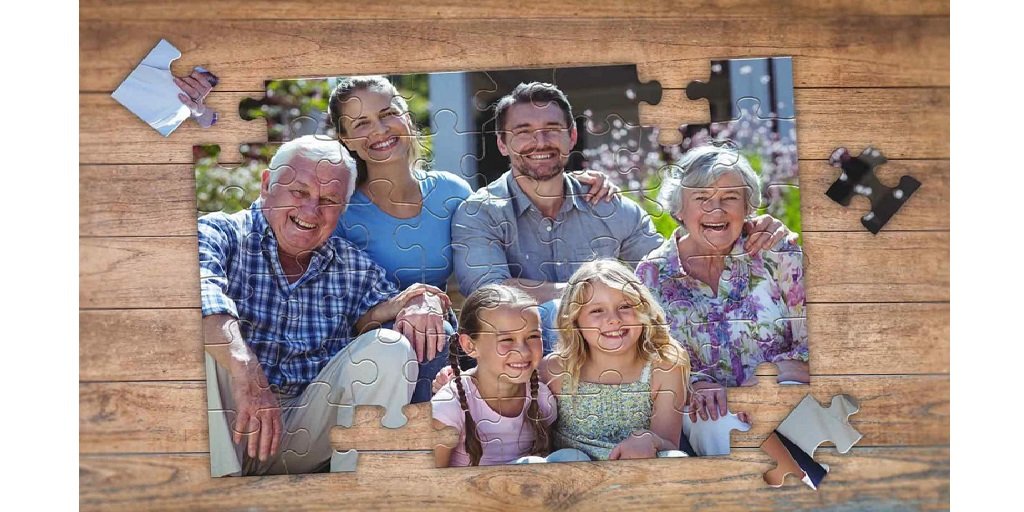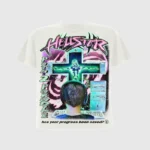Jigsaw puzzles aren’t just a nostalgic pastime—they can be a powerful therapeutic tool, especially for people living with dementia. When a custom puzzle from photos are created incorporating photos of family, friends, or familiar places, their value increases significantly.
These personalized puzzles tap into memory, promote cognitive engagement, and create meaningful moments that go far beyond simply matching pieces.
Triggers Memory and Familiarity
One of the most impactful benefits of custom photo puzzles is their ability to evoke recognition. A person with dementia may not always remember names or recent events, but they often retain long-term memories, especially those tied to strong emotions or routines.
A jigsaw puzzle featuring a childhood home, a beloved pet, or a family gathering can stir up pleasant recollections and emotional connection. These puzzles become more than an activity—they become a gentle prompt for storytelling and reminiscence.
Even if verbal memory is limited, visual recognition can spark subtle shifts in mood or expression. Seeing a familiar face or landscape reassembled piece by piece brings a comforting sense of place and identity. It grounds the person in something personal and affirming, without demanding pressure to recall or explain.
Enhancing Cognitive and Motor Skills
Custom jigsaw puzzles are also a smart way to stimulate cognitive abilities. Sorting, identifying shapes, and spatial reasoning all play a role in completing the picture. These mental tasks exercise the brain without overwhelming it, especially when the puzzle is adapted to the person’s current stage of dementia.
For early-stage dementia, puzzles with medium-sized pieces and moderate complexity can offer a satisfying challenge. As the disease progresses, simpler puzzles with fewer, larger pieces and bright, high-contrast colors are more appropriate.
The flexibility in puzzle design makes it possible to match the activity to each individual’s capabilities—offering engagement without frustration.
In addition to mental stimulation, puzzles also promote fine motor control. Picking up and placing pieces strengthens hand-eye coordination and dexterity. Even these small movements matter, especially as physical ability often declines alongside cognitive changes.
Supporting Emotional Wellbeing
Completing a puzzle—even a small one—provides a real sense of accomplishment. As the image comes together, the process itself builds confidence and satisfaction. For someone with dementia, who may often feel confused or out of control, this feeling of success can be deeply reassuring.
A custom photo puzzle adds another layer to that emotional payoff. It’s not just any picture—it’s their picture. A finished puzzle becomes a personal, recognizable scene that reinforces their connection to loved ones, past experiences, and themselves.
If the activity is shared with a caregiver, friend, or family member, it also becomes an opportunity for bonding. The act of working together—sorting, talking, placing pieces—builds social interaction in a low-pressure setting.
For someone who may struggle to find the words or hold a conversation, a puzzle creates a shared focus that doesn’t rely on memory or language.
Making the Experience Safe and Positive
While puzzles are generally low-risk, there are still important safety and comfort considerations. Choose a large surface area with good lighting. Make sure pieces are large enough to handle easily and avoid sharp edges.
Monitor for signs of fatigue or frustration and be ready to pause if needed. Even with a soothing activity like puzzling, emotional cues matter. Allow flexibility in how the puzzle is completed. Some people prefer collaboration, while others enjoy working alone for relaxation or independence. There’s no right or wrong approach—just what works best for the person that day.
Using a custom puzzle from photos offers much more than entertainment. For someone with dementia, they combine memory stimulation, gentle challenge, emotional connection, and moments of joy into a single, accessible activity.
For more information about Make A Puzzle From A Photo and Customized Puzzle Please visit: MakeYourPuzzle.
Related Reads
- Custom Fitness App Development: Build the Fitness App Your Users Actually Want
- ProQual NVQ Level 7 – Lead Health & Safety with Confidence
- Furnishing the Perfect Home Office: Executive Desks and Beyond
- Golden Visa Dubai – Eligibility, Benefits & How to Apply (2025 Guide)
- Formula 1 Hot Wheels Cars: A Collector’s Dream for Racing Enthusiasts
- Living Room Furniture Ideas for a Vibrant and Stylish Space



